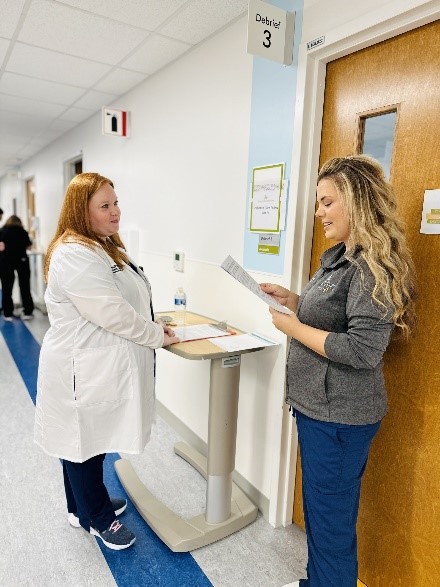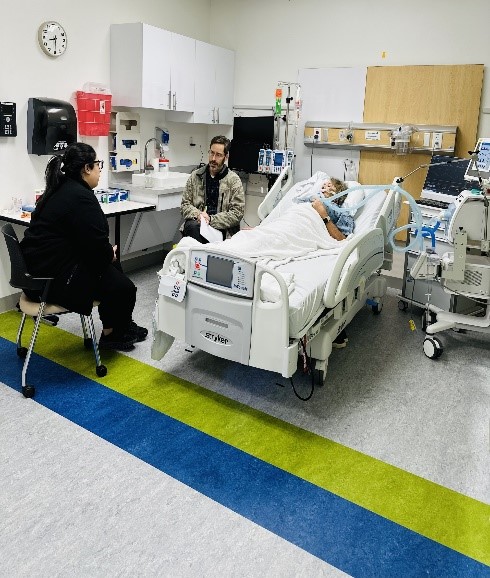Learn about the innovative way that our Hospice and Palliative Medicine fellows are training to be the best in their field!

Palliative care is a specialized field of medicine that focuses on providing comprehensive care to patients with serious illnesses, aiming to improve their quality of life and alleviate suffering. As Hospice and Palliative Medicine fellows embark on their journey to become skilled practitioners in this field, simulations play a crucial role in honing their abilities to assess patient capacity and decision-maker status, engage in therapeutic communication, explain the patient’s plan of care to family members, and navigate complex goals-of-care conversations with the medical team and family.
Simulations offer a safe and controlled environment for Hospice and Palliative Medicine fellows to practice these essential skills. By replicating real-life scenarios, simulations allow fellows to experience the complexities and challenges they may encounter in their clinical practice. These simulations are designed to be interactive and immersive, providing fellows with the opportunity to actively engage in patient interactions and decision-making processes.

One key aspect of palliative care is assessing patient capacity and determining the decision-maker status. Hospice and Palliative Medicine fellows must be adept at evaluating a patient’s ability to understand and make informed decisions about their care. Through simulations, fellows can practice conducting capacity assessments, considering factors such as cognitive function, emotional state and the patient’s understanding of their illness and treatment options. These simulations also help fellows develop the skills to navigate complex ethical and legal issues surrounding decision-making in palliative care.
Therapeutic communication is another critical skill that Hospice and Palliative Medicine fellows must master. Effective communication is essential for building trust, establishing rapport and addressing the emotional and psychological needs of patients and their families. Simulations provide fellows the opportunity to practice active listening, empathy and delivering difficult news in a compassionate manner. Through feedback and guidance from experienced facilitators, fellows can refine their communication skills and develop strategies to navigate challenging conversations with sensitivity and professionalism.

Explaining the patient’s care plan to family members is another crucial aspect of palliative care. Simulations allow fellows to practice delivering clear and concise explanations of treatment options, prognosis and goals of care to family members. They also help fellows develop the ability to tailor their communication to the specific needs and preferences of each family, ensuring that they understand the patient’s condition and are actively involved in decision-making.
Negotiating goals-of-care conversations with the medical team and family is often a complex and delicate process. Simulations provide fellows the opportunity to practice interdisciplinary collaboration, working alongside physicians, nurses, social workers and other healthcare professionals. Fellows can develop skills in facilitating discussions, addressing conflicts and finding common ground to establish appropriate goals of care that align with the patient’s values and wishes.
Palliative Medicine fellow simulations play a vital role in preparing future practitioners to excel in this specialized field. By providing a safe and controlled environment, simulations allow fellows to practice assessing patient capacity, engaging in therapeutic communication, explaining the patient’s plan of care to family members, and navigating goals-of-care conversations with the medical team and family. Through active participation, feedback and reflection, fellows can refine their skills and develop the confidence and competence necessary to provide compassionate and comprehensive palliative care to patients and their families.
Learn more about our Hospice and Palliative Medicine Fellowship by visiting ngmcgme.org/programs/hospice-palliative-medicine-fellowship.
